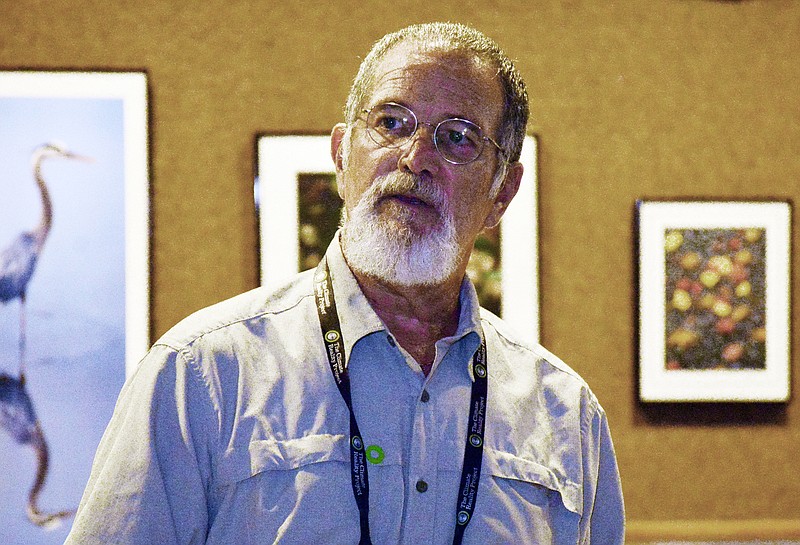A man who studied the climate crisis with Nobel Prize laureates in Mexico City spoke Tuesday about his experiences at Missouri River Regional Library.
Gary Leabman told listeners about the Climate Reality Project, led by former Vice President Al Gore. The project aims to create a global solution to the climate crisis, seeking "urgent action to make world leaders honor their Paris Agreement commitments" to reduce greenhouse gas emissions and mitigate global warming, according to the organization's website.
The project has trained more than 15,000 "climate reality leaders" to share the message. Leabman, a climate reality leader, explained why he thinks now is the time for a sustainability revolution.
The world is at the stage where it must be considered a climate crisis, Leabman said, and began detailing the dramatic changes the planet is undergoing.
"A lot of it is depressing," he warned about 25 listeners. "We really need the political will for change."
But Leabman also sees encouraging signs in the growth in alternative fuels to fossil fuels and power sources, he said.
"This summer is a perfect example of the crisis, not just in Missouri but worldwide," Leabman said. "We are witnessing record heat, floods and fires."
There are 110 million tons of pollution per day going into the atmosphere, the permafrost is thawing, summer temperatures have gotten hotter, he said.
The past two years have set records for worldwide heat, he said. Extreme temperature events - record temperature values observed for a region - used to happen in about 1 percent of the planet annually. Now, the events are happening across 14.5 percent of the planet annually, he added. Ocean temperatures are rising, giving way to more powerful hurricanes. Flooding events are becoming more common and more severe, he said.
The year 2017 featured the most active hurricane season ever, Leabman said.
"The extreme is about to become more normal," he warned. "We're going to talk more about 'precipitation bombs.'"
The precipitation bombs, more commonly known as micro-bursts, are sudden areas of sinking air associated with thunderstorms that can create heavy rain and winds of more than 100 mph.
Along with weather extremes comes famine, Leabman said. Heat and droughts across the world are reducing crop production, he added. European farmers are facing their most serious crop losses since 1978, according to Bloomberg. Much of China and India are in severe droughts; Southern Hemisphere continents also face severe droughts.
"World food prices reached record highs after Russia stopped food exports," Leabman said.
And some communities are at odds over water and water rights, he said.
"Climate change is the No. 1 threat to the global economy," Leabman said.
The good news is there are alternatives to fuels that add greenhouse gases to the atmosphere, he said, noting wind energy, which could supply 40 times the amount of electricity the world consumes, is gaining popularity and solar power is becoming more common.
In 2007, renewable energy provided 7 percent of the world's energy. Now, it provides 12.1 percent, according to data Leabman provided.
Electric and hybrid cars are becoming more common.
Volvo has announced all its cars will be either electric or hybrid starting in 2019.
And homeowners are choosing to produce their own power, Leabman said.
A listener from the audience, Mollie Freebairn, said the cost of installing solar energy is a hurdle that is difficult for most people to overcome.
Another listener, Alan Ames, said he has a home that can be self-sustaining. He is installing solar panels. He'd like to see others using the technology, but there are challenges, such as cost and sunlight availability that make some communities less attractive for it.
"In old Jefferson City, it's hard to find roofs that aren't shaded," Ames said.
With all their profits, fossil fuel companies could convert themselves to "energy companies," Leabman said, and invest in alternatives.
As the climate crisis grows, some people have taken steps to slow or ease it, he said.
"It's a complex subject," Leabman said. "There are no easy solutions, but there are solutions."

